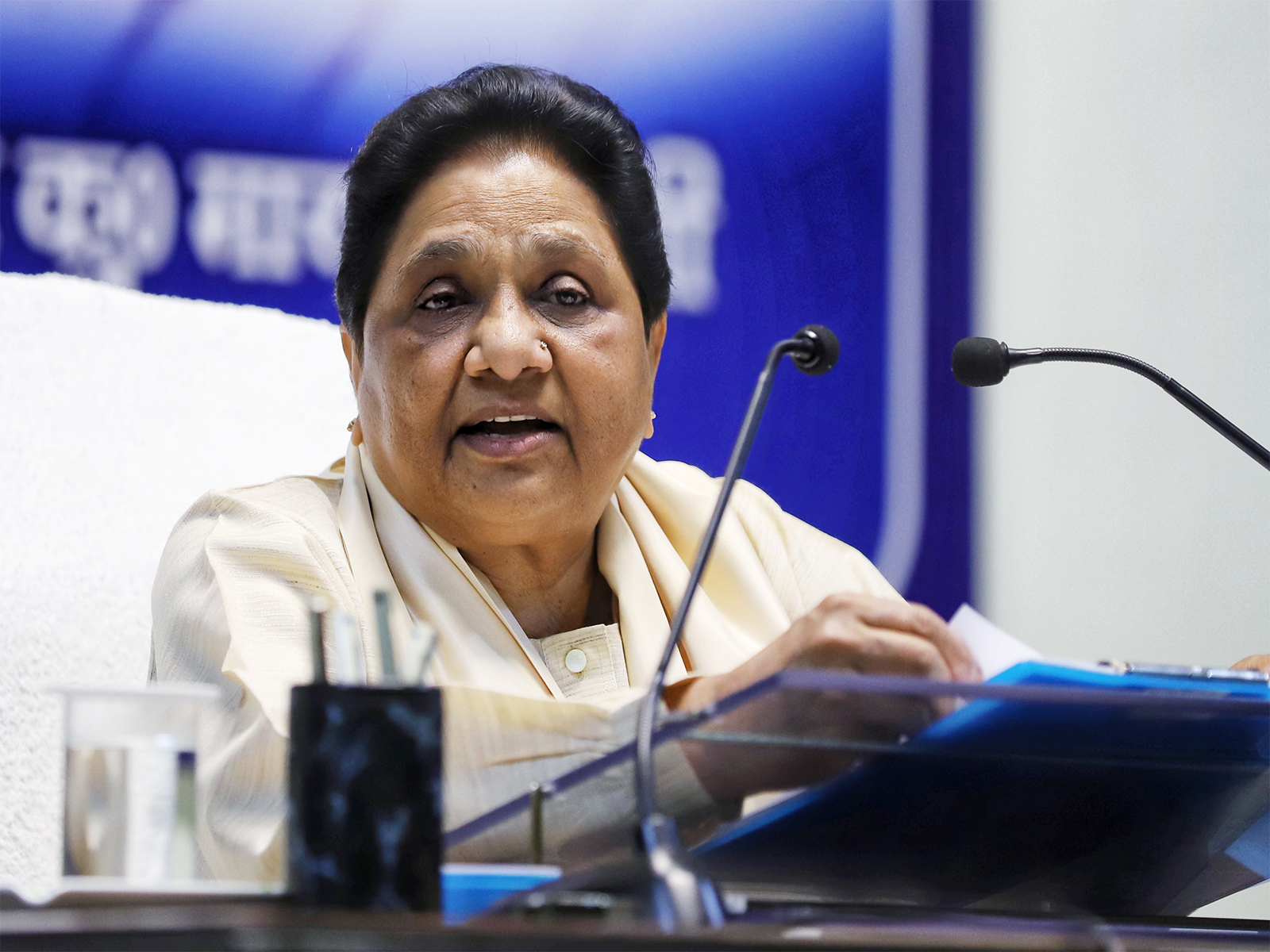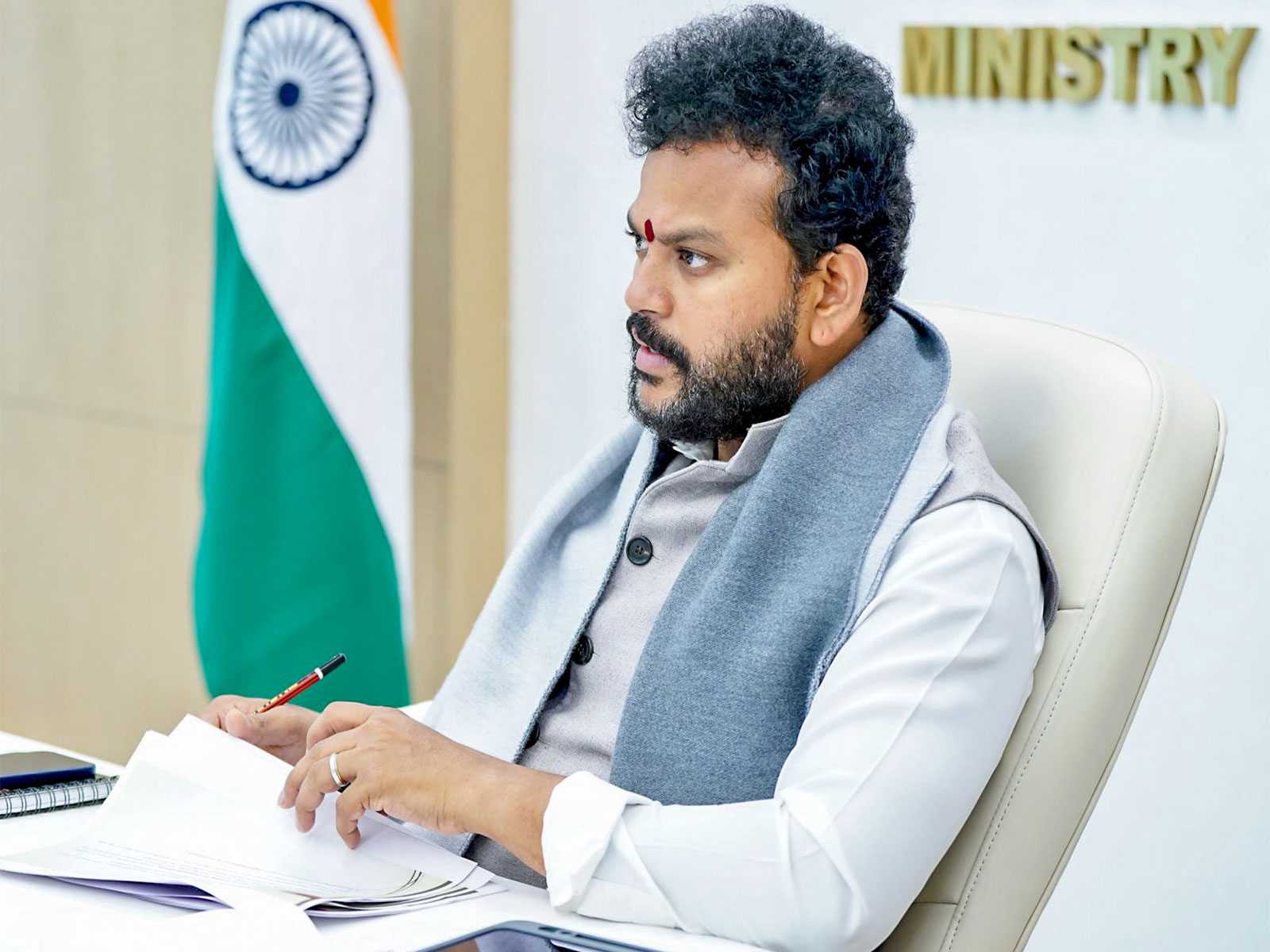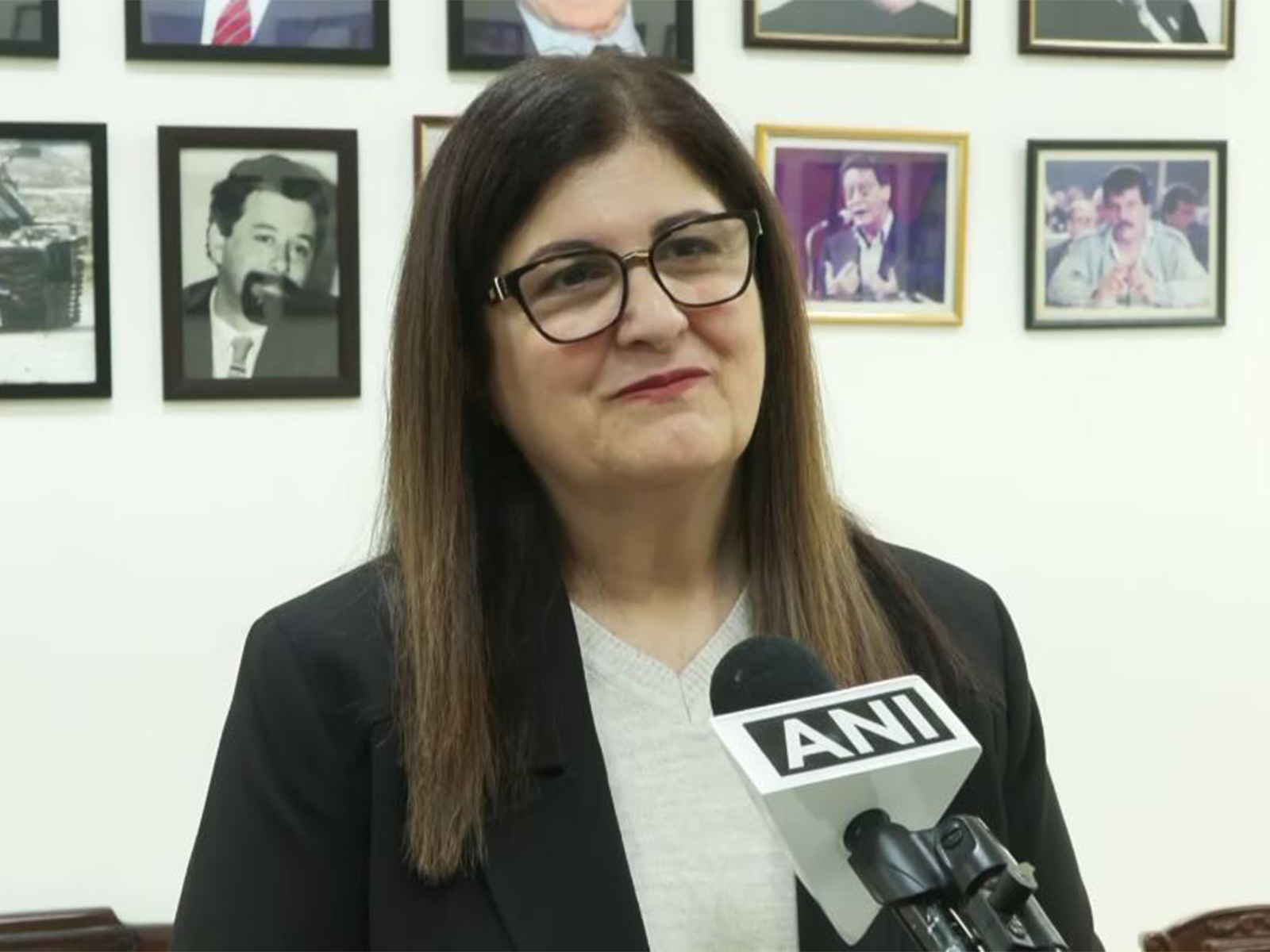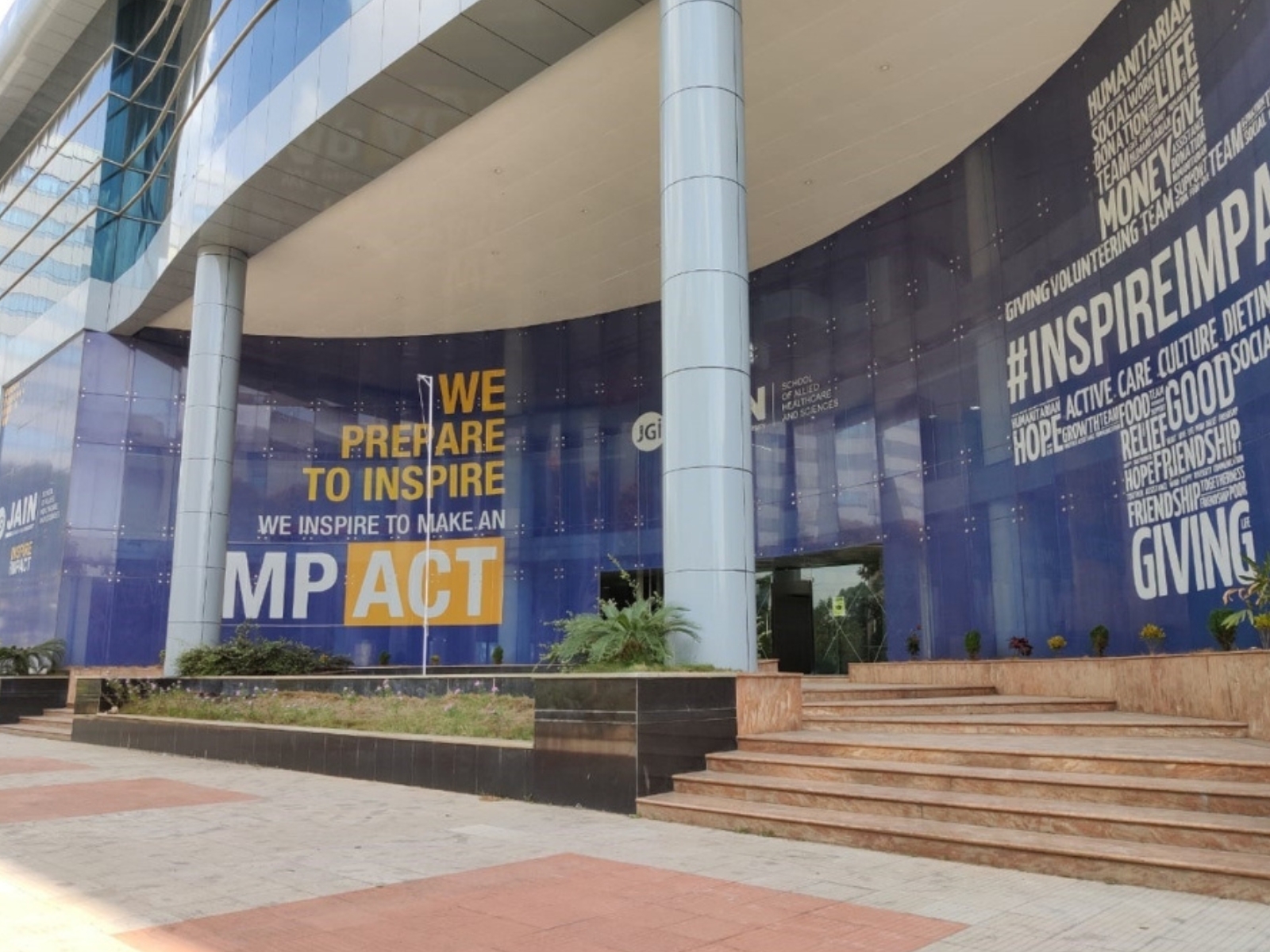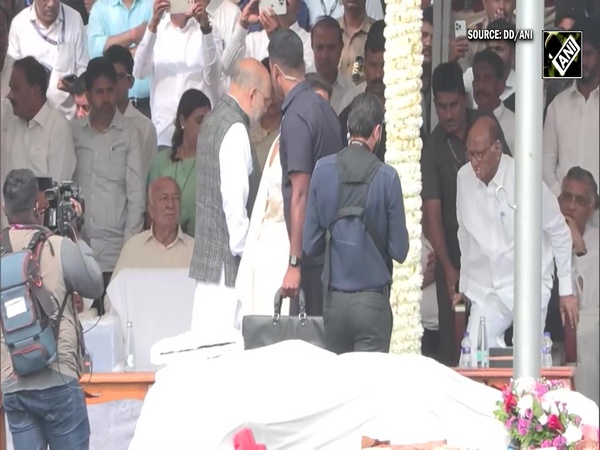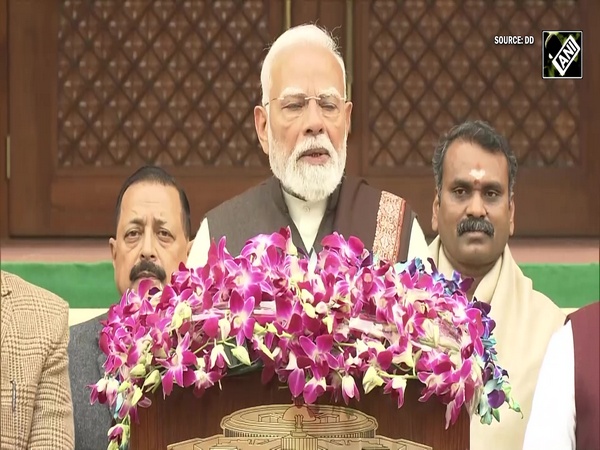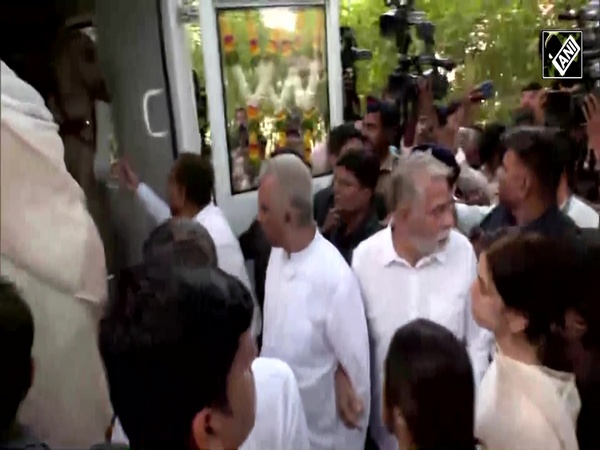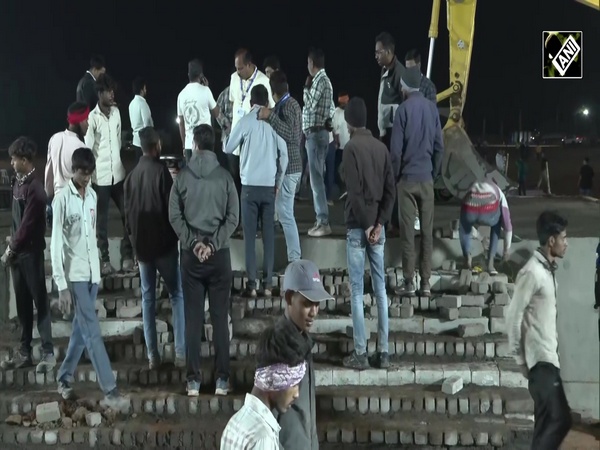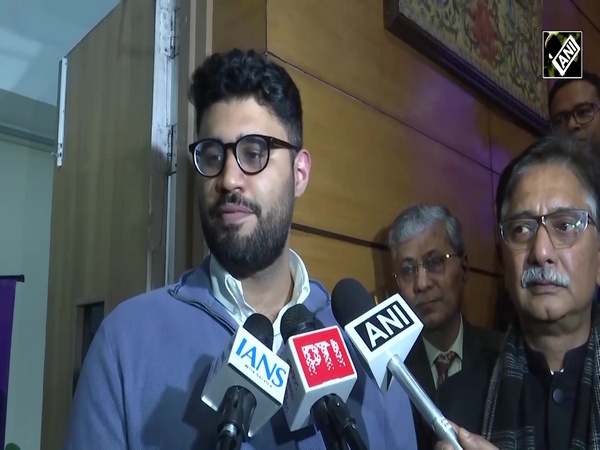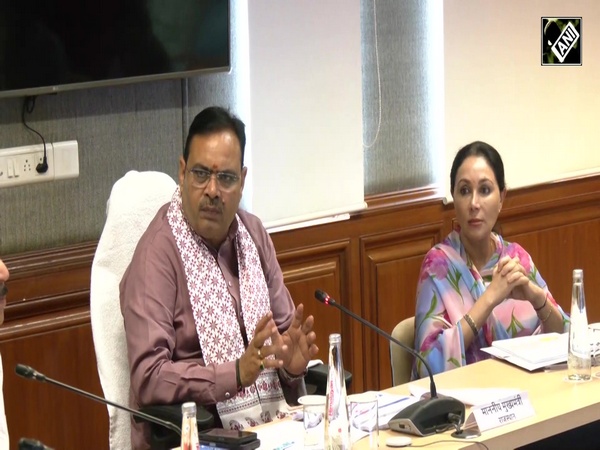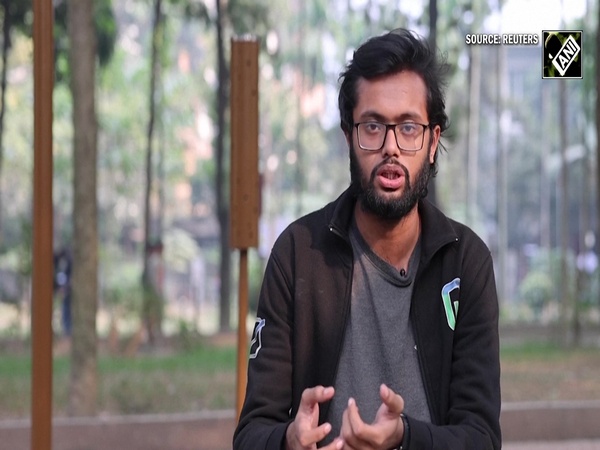India must produce rare materials used in defence, aerospace to become a technology creator: Rajnath Singh
Oct 18, 2025
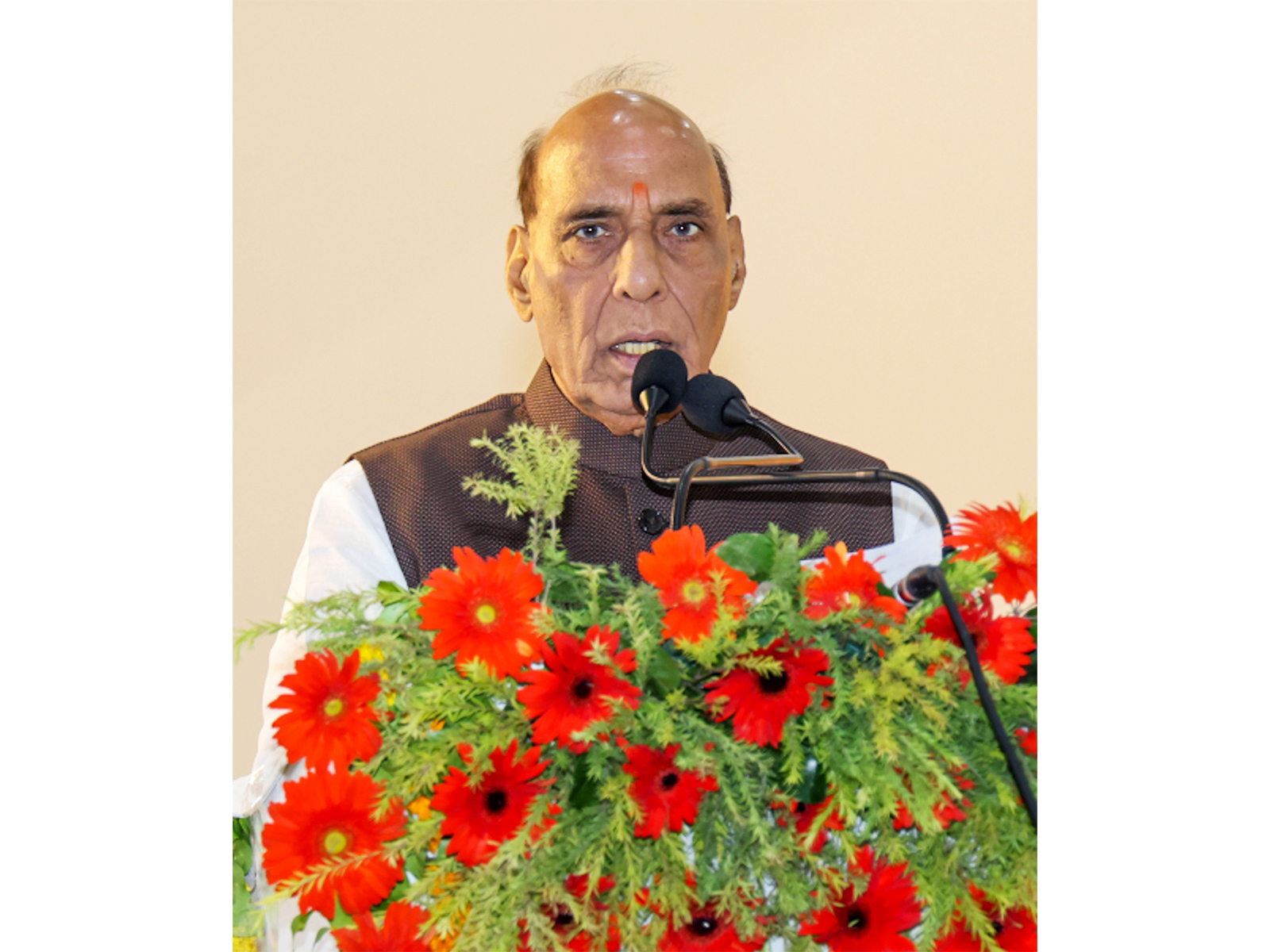
Lucknow (Uttar Pradesh) [India], October 18 : Defence Minister Rajnath Singh on Saturday dedicated to the nation a Titanium and Superalloy Materials Plant at PTC Industries' Strategic Materials Technology Complex in Lucknow here.
Spread over 50 acres, the Strategic Materials Technology Complex has been established with an investment of Rs 1,000 crore. With a production capacity of over 6,000 tonnes per annum, this plant enables India to produce aviation-grade Titanium and Superalloys from domestic and recycled sources - a decisive move towards strategic materials independence.
Emphasising the importance of Rare Earth Materials used in defence, space, electronics, and other sectors, he noted that only certain countries have the capacity to refine these materials and make high-end products. In this context, he said, the plant inaugurated, which is one of the first private sector manufacturing units to make aero-engine components and super alloy components etc., will go a long way in helping India produce rare materials.
"India must produce rare materials used in defence and aerospace to become a technology creator and safeguard its technological sovereignty," said Defence Minister Singh.
Defence Minister noted that, in the past, India had been dependent on other countries for the advanced materials and critical technologies needed for defence and aerospace, thereby slowing the growth of the defence sector, and the initiatives such as the Titanium and Superalloy Materials Plant indicate a reversal of this trend.
Singh reiterated that India would acquire true strength only when it can manufacture its own materials, components, chips and alloys. He stated that this new plant puts India amongst a select group of nations which can make their own critical defence and aerospace materials. "With this, we will be able to manufacture the parts used in our fighter jets, missiles, naval systems and satellites", he said.
Defence Minister Singh stressed that while technology is power, material is the real strength, adding that be it a semiconductor chip, bullet material or engine turbine part, none is possible without strategic materials. "We are building a foundation which will strengthen India's technological sovereignty in the coming years," he added.
Calling the plant a living example of Aatmanirbhar Bharat, Rajnath Singh said the type would benefit not only the industry, but the society at large. It establishes an innovation chain which will fulfill the goal of Aatmanirbhar Bharat in the defence sector and give fresh momentum to the state economy, he said.
On the Strategic Materials Technology Complex, Defence Minister expressed confidence that it adds a new dimension to the industrial map of Uttar Pradesh. He said that the complex, along with ancillary units and supplier industries will create direct and indirect job opportunities in the state itself. He added that the UP Defence Industrial Corridor will be amongst the most advanced manufacturing zones in Asia, connecting to several start-ups and MSMEs, which will provide jobs to youth and opportunities for training and technical experience.
Rajnath Singh applauded UP Chief Minister Yogi Adityanath for the strides made by the state in coming to the forefront of the industrial revolution in the past 10 years. He said that improved law and order has boosted investor confidence and factories, IT hubs, and research centres are being set-up in the state, which has become the growth engine of the country.
Hailing India's changed mindset, the Defence Minister said, "We are entering a new era and have moved beyond Make-in-India to Design, Develop and Deliver in India." He also noted the prominent role played by the private sector in defence production and research, exuding confidence that if the industry and the government work together, any goal is possible.
Rajnath Singh called upon youth, innovators, MSMEs and start-ups to take advantage of the possibilities in the defence sector not just as a business opportunities but as a responsibility to the nation. The work being done today will inspire a new generation of innovators, he said. He acknowledged the progress made in public private partnership in defence manufacturing and assured government policy support and cooperation to stakeholders in India's defence and aerospace sector. He called upon all stakeholders to pursue the goal of making India a global defence manufacturing hub through innovation, dedication, and passion.
Earlier, Defence Minister Rajnath Singh took a tour of the Strategic Materials Technology Complex accompanied by UP Chief Minister Yogi Adityanath, Deputy Chief Minister Brajesh Pathak, Secretary, Department of Defence R&D and Chairman DRDO Samir V Kamat and DG (BrahMos) Jaytirth R Joshi. Defence Minister and the dignitaries were briefed on the complex facilities by Chairman and Managing Director, PTC Industries Sachin Agarwal.
An MoU was also signed between PTC Industries Limited and Bharat Dynamics Limited (BDL) to form a joint venture for the design, development, and manufacture of propulsion systems, guided bombs, and small aeroengines for missiles, UAVs, and loitering munitions. The collaboration aims to leverage the complementary strengths of both organizations and accelerate the indigenization of advanced propulsion technologies, reducing dependence on imports and strengthening India's defence manufacturing base.
Additionally, PTC Industries received a Letter of Technical Acceptance (LoTA) from the Centre for Military Airworthiness and Certification (CEMILAC), under the Defence Research and Development Organisation (DRDO), for the indigenous development and manufacture of the Titanium Rear Fin Root Casting for the Advanced Medium Combat Aircraft (AMCA) program. Developed in collaboration with the Defence Metallurgical Research Laboratory (DMRL) and the Aeronautical Development Agency (ADA), this achievement marks a critical advancement in India's indigenous capability to produce structural castings for next-generation fighter aircraft.
PTC Industries also received a Letter of Technical Acceptance (LoTA) from CEMILAC, DRDO, for the indigenous development and manufacture of Oil Tank Assembly Titanium Castings for the Kaveri Derivative Engine (KDE-2). This will be executed in partnership with the Gas Turbine Research Establishment (GTRE).
Furthering its collaboration with GTRE, PTC Industries also received a Purchase Order for Post-Cast Operations to manufacture Single Crystal 'Ready-to-Fit' Turbine Blades for the Kaveri Derivative Engine (KDE-2). This achievement marks an important step in India's capability to produce single-crystal turbine blades - one of the most complex and high-value components in modern jet engines.
